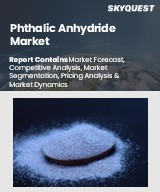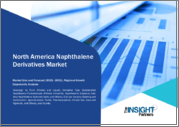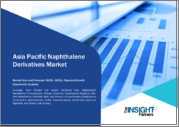
|
시장보고서
상품코드
1702047
나프텐산 시장 보고서 : 유형별, 용도별, 판매채널별, 지역별(2025-2033년)Naphthenic Acid Market Report by Type, Application, Sales Channel, and Region 2025-2033 |
||||||
나프텐산 시장 세계 시장 규모는 2024년에 7,170만 달러에 달했습니다. 향후 IMARC Group은 이 시장이 2033년까지 8,560만 달러에 달하고, 2025-2033년 2.00%의 연평균 복합 성장률(CAGR)을 보일 것으로 예측했습니다.
나프텐산(CnH2n-z O2)은 옅은 노란색에서 짙은 노란색의 불용성 복합 화합물로, 원유와 모래 역청석탄에 함유된 카르복시산과 소량의 비환식 산의 혼합물입니다. 나프 텐산은 석유 증류에서 가성 추출을 통해 얻어지며 가성 세척을 통해 정제 스트림에서 제거됩니다. 나프 텐산은 계면 활성제 역할을하여 에멀젼의 형성 및 안정화를 유발하여 제품 사양을 충족시키기 위해 높은 수준의 처리가 필요할 수 있습니다. 그 결과, 나프 텐산은 금속 합성, 페인트 건조제, 세제, 용제, 용매, 유기 과산화물, 부식 방지제, 금속 나프 텐산 염, 잉크 건조제, 고무 재생 등에 광범위하게 적용되고 있습니다. 현재 정제된 고품질 제품 유형이 시판되고 있으며, 수요에 따라 다양한 산업에서 사용되고 있습니다.
나프텐산 시장 동향 :
울타리, 기둥, 가구 및 기타 목재 표면과 같은 다양한 목재 제품을 보호해야 할 필요성이 증가함에 따라 주거 및 상업 부문 전반에서 나프텐산을 방부제로 널리 채택하고 있으며, 이는 주로 시장 성장을 주도하고 있습니다. 나프텐산은 구리염, 아연 나프텐산염, 나프텐산과 함께 셀룰로오스 기반 재료를 부패 및 극한의 온도와 습도로부터 보호하는 데 사용됩니다. 이에 따라 엔진의 수명을 연장하기 위해 제트 엔진 및 기관차의 연료 첨가제로 나프텐산의 사용량이 증가하고 있는 것도 성장을 가속하는 요인으로 작용하고 있습니다. 또한, 항공우주 산업에서 제트 연료의 제조에 방청제로 널리 사용되는 것도 영향을 미칩니다. 또한, 나프텐산은 윤활제, 접착제, 밀봉제, 코팅제, 살충제, 유화제 중간체, 스케일 방지제 등에 적용되어 시장 성장을 뒷받침하고 있습니다. 이와는 별도로, 나프텐산의 스케일링 방지 특성과 주요 기업 간의 전략적 제휴로 인해 산업용 도료에서 인산 에스테르의 이상적인 대체품으로 부상하고 있는 것은 시장에 밝은 전망을 가져다주고 있습니다.
본 보고서에서 다룬 주요 질문
- 2024년 세계 나프텐산 시장 규모는?
- 2025-2033년 세계 나프텐산 시장 예상 성장률은?
- 세계 나프 텐산 시장을 이끄는 주요 요인은?
- 코로나19가 세계 나프텐산 시장에 미치는 영향은?
- 세계 나프텐산 시장의 유형별 분류는?
- 세계 나프 텐산 시장의 용도별 분류는?
- 세계 나프텐산 시장의 주요 지역은?
- 세계 나프텐산 시장의 주요 기업은?
목차
제1장 서문
제2장 조사 범위와 조사 방법
- 조사 목적
- 이해관계자
- 데이터 소스
- 1차 정보
- 2차 정보
- 시장 추정
- 보텀업 접근
- 톱다운 접근
- 조사 방법
제3장 주요 요약
제4장 서론
- 개요
- 주요 업계 동향
제5장 세계의 나프텐산 시장
- 시장 개요
- 시장 실적
- COVID-19의 영향
- 시장 예측
제6장 시장 분석 : 유형별
- 정제 나프텐산
- 고순도 나프텐산
제7장 시장 분석 : 용도별
- 페인트 및 잉크 건조기
- 목재 방부제
- 연료 및 마찰저감제
- 고무 첨가제
- 기타
제8장 시장 분석 : 판매채널별
- 직접 판매 채널
- 도매업체
제9장 시장 분석 : 지역별
- 북미
- 미국
- 캐나다
- 아시아태평양
- 중국
- 일본
- 인도
- 한국
- 호주
- 인도네시아
- 기타
- 유럽
- 독일
- 프랑스
- 영국
- 이탈리아
- 스페인
- 러시아
- 기타
- 라틴아메리카
- 브라질
- 멕시코
- 기타
- 중동 및 아프리카
- 시장 내역 : 국가별
제10장 SWOT 분석
- 개요
- 강점
- 약점
- 기회
- 위협
제11장 밸류체인 분석
제12장 Porter의 Five Forces 분석
- 개요
- 바이어의 교섭력
- 공급 기업의 교섭력
- 경쟁 정도
- 신규 진출업체의 위협
- 대체품의 위협
제13장 가격 분석
제14장 경쟁 구도
- 시장 구조
- 주요 기업
- 주요 기업 개요
- Haihang Industry Co. Ltd
- Jigchem Universal
- Leo Chemo Plast Pvt. Ltd.
- Merck KGaA
- Merichem Company
- Petroleos del Peru
- Shenyang Zhang Ming Chemical Co. Ltd.
- Tokyo Chemical Industry Co. Ltd
- Umicore Cobalt & Specialty Materials
The global naphthenic acid market size reached USD 71.7 Million in 2024. Looking forward, IMARC Group expects the market to reach USD 85.6 Million by 2033, exhibiting a growth rate (CAGR) of 2.00% during 2025-2033.
Naphthenic Acid (CnH2n-z O2) refers to a light-yellowish to dark-colored, insoluble complex compound that is identified as the mixture of predominant carboxylic and a small amount of acyclic acids present in crude oil or sand bitumen. It is obtained from the caustic extraction of petroleum distillation procedure wherein the product is removed from refinery streams through caustic washing. Naphthenic acid can act as a surfactant, causing emulsion formulation and stabilization, and it can necessitate high levels of treatment to meet product specifications. Consequently, naphthenic acid finds extensive applications in metal synthesis, paint dryers, detergents, solvents, organic peroxides, corrosion inhibitors, metal naphthenates, ink driers, and rubber reclaiming. At present, it is commercially available in refined and high-quality product types, which are used in diverse industries based on requirements.
Naphthenic Acid Market Trends:
The increasing need to protect various wood products, such as fences, poles, furniture, and other timber surfaces, has facilitated the widespread adoption of naphthenic acid as a preservative across the residential and commercial sectors, which is primarily driving the market growth. Naphthenic acid is used with copper salts, zinc naphthenate, and naphthenic acid to protect cellulosic materials from decay and extreme temperatures or humidity. In line with this, the rising usage of naphthenic acid as fuel additives in jet engines and locomotives to increase engine life is acting as another growth-inducing factor. It is further influenced by the extensive product usage in the aerospace industry as an anti-corrosive agent in the production of jet fuels. Additionally, naphthenic acid finds applications in lubricants, adhesives, sealants, coatings, pesticides, emulsifier intermediates, and anti-scaling agents, which, in turn, is supporting the market growth. Apart from this, the emergence of naphthenic acid as an ideal alternative to phosphate ester in industrial coatings, owing to its anti-scaling properties and strategic collaborations among key players, are creating a positive outlook for the market.
Key Market Segmentation:
Breakup by Type:
- Refined Naphthenic Acid
- High-purity Naphthenic Acid
Breakup by Application:
- Paint and Ink Driers
- Wood Preservatives
- Fuel and Lubricant Additives
- Rubber Additives
- Others
Breakup by Sales Channel:
- Direct Channel
- Distributor
Breakup by Region:
- North America
- United States
- Canada
- Asia-Pacific
- China
- Japan
- India
- South Korea
- Australia
- Indonesia
- Others
- Europe
- Germany
- France
- United Kingdom
- Italy
- Spain
- Russia
- Others
- Latin America
- Brazil
- Mexico
- Others
- Middle East and Africa
Competitive Landscape:
The competitive landscape of the industry has also been examined along with the profiles of the key players being Haihang Industry Co. Ltd, Jigchem Universal, Leo Chemo Plast Pvt. Ltd., Merck KGaA, Merichem Company, Petroleos del Peru, Shenyang Zhang Ming Chemical Co. Ltd., Tokyo Chemical Industry Co. Ltd and Umicore Cobalt & Specialty Materials.
Key Questions Answered in This Report
- 1.What was the size of the global naphthenic acid market in 2024?
- 2.What is the expected growth rate of the global naphthenic acid market during 2025-2033?
- 3.What are the key factors driving the global naphthenic acid market?
- 4.What has been the impact of COVID-19 on the global naphthenic acid market?
- 5.What is the breakup of the global naphthenic acid market based on the type?
- 6. What is the breakup of the global naphthenic acid market based on the application?
- 7.What are the key regions in the global naphthenic acid market?
- 8.Who are the key players/companies in the global naphthenic acid market?
Table of Contents
1 Preface
2 Scope and Methodology
- 2.1 Objectives of the Study
- 2.2 Stakeholders
- 2.3 Data Sources
- 2.3.1 Primary Sources
- 2.3.2 Secondary Sources
- 2.4 Market Estimation
- 2.4.1 Bottom-Up Approach
- 2.4.2 Top-Down Approach
- 2.5 Forecasting Methodology
3 Executive Summary
4 Introduction
- 4.1 Overview
- 4.2 Key Industry Trends
5 Global Naphthenic Acid Market
- 5.1 Market Overview
- 5.2 Market Performance
- 5.3 Impact of COVID-19
- 5.4 Market Forecast
6 Market Breakup by Type
- 6.1 Refined Naphthenic Acid
- 6.1.1 Market Trends
- 6.1.2 Market Forecast
- 6.2 High-purity Naphthenic Acid
- 6.2.1 Market Trends
- 6.2.2 Market Forecast
7 Market Breakup by Application
- 7.1 Paint and Ink Driers
- 7.1.1 Market Trends
- 7.1.2 Market Forecast
- 7.2 Wood Preservatives
- 7.2.1 Market Trends
- 7.2.2 Market Forecast
- 7.3 Fuel and Lubricant Additives
- 7.3.1 Market Trends
- 7.3.2 Market Forecast
- 7.4 Rubber Additives
- 7.4.1 Market Trends
- 7.4.2 Market Forecast
- 7.5 Others
- 7.5.1 Market Trends
- 7.5.2 Market Forecast
8 Market Breakup by Sales Channel
- 8.1 Direct Channel
- 8.1.1 Market Trends
- 8.1.2 Market Forecast
- 8.2 Distributor
- 8.2.1 Market Trends
- 8.2.2 Market Forecast
9 Market Breakup by Region
- 9.1 North America
- 9.1.1 United States
- 9.1.1.1 Market Trends
- 9.1.1.2 Market Forecast
- 9.1.2 Canada
- 9.1.2.1 Market Trends
- 9.1.2.2 Market Forecast
- 9.1.1 United States
- 9.2 Asia-Pacific
- 9.2.1 China
- 9.2.1.1 Market Trends
- 9.2.1.2 Market Forecast
- 9.2.2 Japan
- 9.2.2.1 Market Trends
- 9.2.2.2 Market Forecast
- 9.2.3 India
- 9.2.3.1 Market Trends
- 9.2.3.2 Market Forecast
- 9.2.4 South Korea
- 9.2.4.1 Market Trends
- 9.2.4.2 Market Forecast
- 9.2.5 Australia
- 9.2.5.1 Market Trends
- 9.2.5.2 Market Forecast
- 9.2.6 Indonesia
- 9.2.6.1 Market Trends
- 9.2.6.2 Market Forecast
- 9.2.7 Others
- 9.2.7.1 Market Trends
- 9.2.7.2 Market Forecast
- 9.2.1 China
- 9.3 Europe
- 9.3.1 Germany
- 9.3.1.1 Market Trends
- 9.3.1.2 Market Forecast
- 9.3.2 France
- 9.3.2.1 Market Trends
- 9.3.2.2 Market Forecast
- 9.3.3 United Kingdom
- 9.3.3.1 Market Trends
- 9.3.3.2 Market Forecast
- 9.3.4 Italy
- 9.3.4.1 Market Trends
- 9.3.4.2 Market Forecast
- 9.3.5 Spain
- 9.3.5.1 Market Trends
- 9.3.5.2 Market Forecast
- 9.3.6 Russia
- 9.3.6.1 Market Trends
- 9.3.6.2 Market Forecast
- 9.3.7 Others
- 9.3.7.1 Market Trends
- 9.3.7.2 Market Forecast
- 9.3.1 Germany
- 9.4 Latin America
- 9.4.1 Brazil
- 9.4.1.1 Market Trends
- 9.4.1.2 Market Forecast
- 9.4.2 Mexico
- 9.4.2.1 Market Trends
- 9.4.2.2 Market Forecast
- 9.4.3 Others
- 9.4.3.1 Market Trends
- 9.4.3.2 Market Forecast
- 9.4.1 Brazil
- 9.5 Middle East and Africa
- 9.5.1 Market Trends
- 9.5.2 Market Breakup by Country
- 9.5.3 Market Forecast
10 SWOT Analysis
- 10.1 Overview
- 10.2 Strengths
- 10.3 Weaknesses
- 10.4 Opportunities
- 10.5 Threats
11 Value Chain Analysis
12 Porters Five Forces Analysis
- 12.1 Overview
- 12.2 Bargaining Power of Buyers
- 12.3 Bargaining Power of Suppliers
- 12.4 Degree of Competition
- 12.5 Threat of New Entrants
- 12.6 Threat of Substitutes
13 Price Analysis
14 Competitive Landscape
- 14.1 Market Structure
- 14.2 Key Players
- 14.3 Profiles of Key Players
- 14.3.1 Haihang Industry Co. Ltd
- 14.3.1.1 Company Overview
- 14.3.1.2 Product Portfolio
- 14.3.2 Jigchem Universal
- 14.3.2.1 Company Overview
- 14.3.2.2 Product Portfolio
- 14.3.3 Leo Chemo Plast Pvt. Ltd.
- 14.3.3.1 Company Overview
- 14.3.3.2 Product Portfolio
- 14.3.4 Merck KGaA
- 14.3.4.1 Company Overview
- 14.3.4.2 Product Portfolio
- 14.3.4.3 Financials
- 14.3.4.4 SWOT Analysis
- 14.3.5 Merichem Company
- 14.3.5.1 Company Overview
- 14.3.5.2 Product Portfolio
- 14.3.6 Petroleos del Peru
- 14.3.6.1 Company Overview
- 14.3.6.2 Product Portfolio
- 14.3.7 Shenyang Zhang Ming Chemical Co. Ltd.
- 14.3.7.1 Company Overview
- 14.3.7.2 Product Portfolio
- 14.3.8 Tokyo Chemical Industry Co. Ltd
- 14.3.8.1 Company Overview
- 14.3.8.2 Product Portfolio
- 14.3.9 Umicore Cobalt & Specialty Materials
- 14.3.9.1 Company Overview
- 14.3.9.2 Product Portfolio
- 14.3.9.3 Financials
- 14.3.9.4 SWOT Analysis
- 14.3.1 Haihang Industry Co. Ltd






